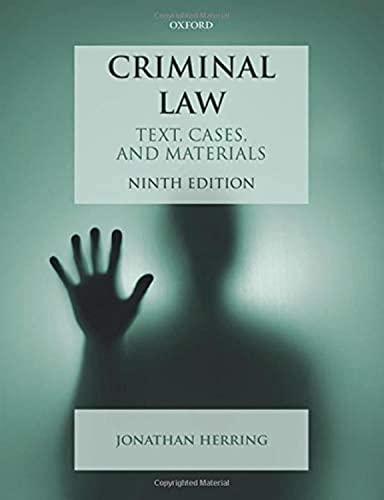Question
1. Shortly after John's trial for first-degree murder had started, he and the prosecutor reached a plea agreement whereby John would plead guilty to second-degree
1. Shortly after John's trial for first-degree murder had started, he and the prosecutor reached a plea agreement whereby John would plead guilty to second-degree murder and testify against other parties involved in the murder, in return for a specified prison term and a promise not to convict him for other crimes. The agreement provided that if John refused to testify, "this entire agreement is null and void and the original charge will be automatically reinstated." John did testify against the other parties, who were subsequently convicted of first-degree murder. The state supreme court reversed the convictions against the other parties, remanding for retrial. The prosecutor sought John to testify a second time. John maintained that his obligations under the plea agreement had been satisfied, though he was willing to negotiate a further reduction for additional testimony. The prosecutor treated John's statement as a repudiation and reinstated first-degree murder charges against John. The other criminals were convicted without John's testimony. John later brought a breach of contract claim against the government in an attempt to restore the sentence for second-degree murder. Analyze whether John's statement was a repudiation.
Step by Step Solution
There are 3 Steps involved in it
Step: 1

Get Instant Access to Expert-Tailored Solutions
See step-by-step solutions with expert insights and AI powered tools for academic success
Step: 2

Step: 3

Ace Your Homework with AI
Get the answers you need in no time with our AI-driven, step-by-step assistance
Get Started


